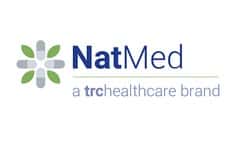Quercetin, found in many plant-based foods and available as a supplement, is linked to better body terrainthe internal conditions of your body, including nutritional status, fitness, blood sugar balance, hormone balance, inflammation and more, and especially lower inflammation.
How do experts use quercetin?
Integrative experts provide recommendations for quercetin in treating people with cancer. Learn more about the approaches and meanings of recommendations: Integrative Oncology Programs and Expert Guidelines ›
Published protocols, programs, and approaches
These protocolsa package of therapies combining and preferably integrating various therapies and practices into a cohesive design for care, programs, and approaches by leaders in integrative cancer care use or recommend this therapy or practice.
We do not recommend specific integrative protocols or programs but provide information for you to evaluate with your healthcare team.
Lise Alschuler, ND, FABNO, and Karolyn Gazella
Alschuler LN, Gazella KA. The Definitive Guide to Cancer, 3rd Edition: An Integrative Approach to Prevention, Treatment, and Healing. Berkeley, California: Celestial Arts. 2010.
Alschuler LN, Gazella KA. The Definitive Guide to Thriving after Cancer: A Five-Step Integrative Plan to Reduce the Risk of Recurrence and Build Lifelong Health. Berkeley, California: Ten Speed Press. 2013.
Approaches are described for certain cancer types, or along with certain conventional therapy treatments, or for particular conditions such as insulin resistance.
Uses of quercetin:
- Colon cancer
- Melanoma
- Ovarian cancer
- Prostate cancer
- Soft tissue sarcomas
- Thyroid cancer
Keith Block, MD
Block KI. Life over Cancer: The Block Center Program for Integrative Cancer Care. New York: Bantam Dell. 2009.
The integrative Block Program has recommendations to people who are at different places along the cancer continuum:
- Those who’ve been recently diagnosed
- Those in treatment
- Those who’ve concluded treatment and need to remain vigilant to prevent recurrence
Dr. Keith Block uses quercetin as a natural molecular target modifier (IGF-I). Targeted therapies home in on particular growth pathways that cancer cells use to proliferate while sparing normal cells. Dr. Block also uses quercetin in multiple vitamin combinations, including with vitamin C to tackle inflammation alterations of the terrain of the human body. Quercetin may also help manage cancer-related and/or treatment-related symptoms such as diarrhea and depression. Dr. Block also uses quercetin for chemotherapy enhancement and reduction of risk of secondary cancers.
Gerald M. Lemole, MD; Pallav K. Mehta, MD; and Dwight L. McKee, MD
Lemole GM, Mehta PK, McKee DL. After Cancer Care: The Definitive Self-Care Guide to Getting and Staying Well for Patients with Cancer. New York, New York: Rodale, Inc. 2015.
These doctors present easy-to-incorporate lifestyle changes to help you “turn on” hundreds of genes that fight cancer, and “turn off” the ones that encourage cancer, while recommending lifestyle approaches to address each type.
Uses of quercetin:
- Bladder cancer
- Breast cancer
- Colorectal cancer
- Lung cancer
- Lymphoma
- Prostate cancer
Barbara MacDonald, ND, LAc
MacDonald B. The Breast Cancer Companion—A Complementary Care Manual: Third Edition. Self-published. 2016.
Naturopathic physician Barbara MacDonald provides information about breast cancer, its conventional treatment, and natural approaches to enhancing treatment, managing side effects, reducing risk of recurrence, and healthy living after cancer treatment is completed.
Uses of quercetin:
- Reconstruction support after surgery for pain and bruising
- Hand-foot syndrome
- Advises caution with some chemotherapy treatments; see Safety and precautions ›
Neil McKinney, BSc, ND
McKinney N. Naturopathic Oncology, Fourth Edition. Victoria, BC, Canada: Liaison Press. 2020.
This book includes descriptions and uses of many natural and complementary protocols for cancer in general and for specific cancers. It also includes information on integrative support during conventional cancer treatment.
Uses of quercetin:
- Brain/nerve cancer
- Breast cancer
- Cervical cancer
- Colorectal cancer
- Leukemia
- Lung cancer
- Melanoma
- Ovarian cancer
- Pancreatic cancer
- Skin cancer
- Thyroid cancer
- Uterine cancer
- Bastyr University Integrative Oncology Research Center protocol for stage IV breast cancer
Gurdev Parmar, ND, FABNO, and Tina Kaczor, ND, FABNO
Parmar G, Kaczor T. Textbook of Naturopathic Oncology: A Desktop Guide of Integrative Cancer Care. 1st edition. Medicatrix Holdings Ltd. 2020.
This book provides information on the treatment of 24 cancers, plus the most effective treatments of the most common symptoms affecting cancer patients while they undergo chemotherapy, radiotherapy, or surgery.
Uses of quercetin:
- Bladder cancer treated with cyclophosphamide
- Chronic lymphocytic leukemia, given intravenously
Other expert assessments
Moss Reports

Subscription required
The Moss Reports conclude that quercetin has anticancer properties.
Traditional medicine
Quercetin is an active ingredient in traditional Chinese medicines1Xu D, Hu MJ, Wang YQ, Cui YL. Antioxidant activities of quercetin and its complexes for medicinal application. Molecules. 2019 Mar 21;24(6):1123. such as Yang-Yin-Qing-Fei-Tang.2Li H, Tan L et al. Quercetin is the active component of Yang-Yin-Qing-Fei-Tang to induce apoptosis in non-small cell lung cancer. American Journal of Chinese Medicine. 2019;47(4):879-893.
Learn more about traditional medicine and how to find practitioners: Finding Integrative Oncologists and Other Practitioners ›
Dosing
Dosage has not been standardized for use in cancer care. Dosage recommendations are available from this source:

Subscription required
General information about dosing
Find general dosing guidelines regarding natural products and supplements in Dosing Guidelines ›
References
